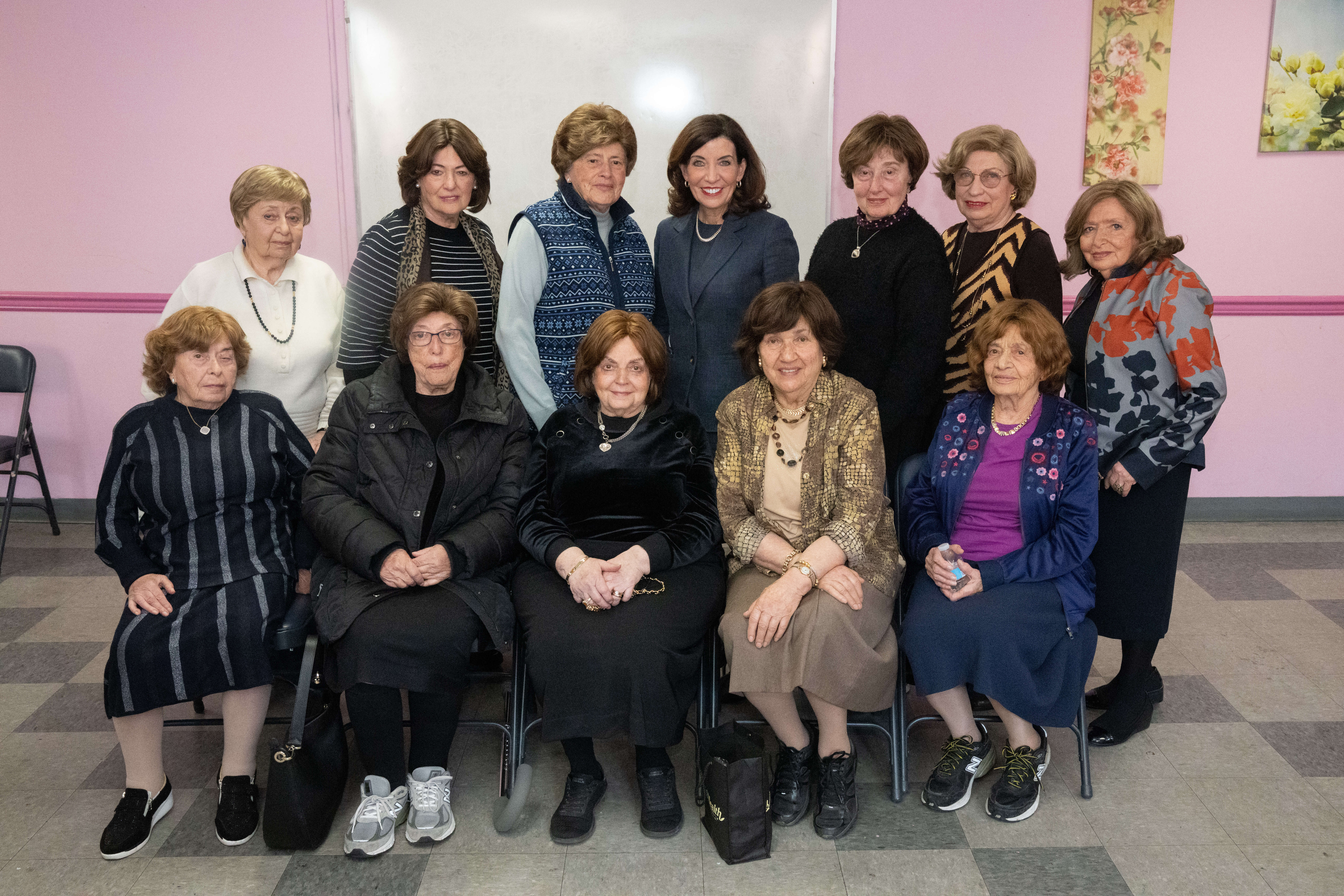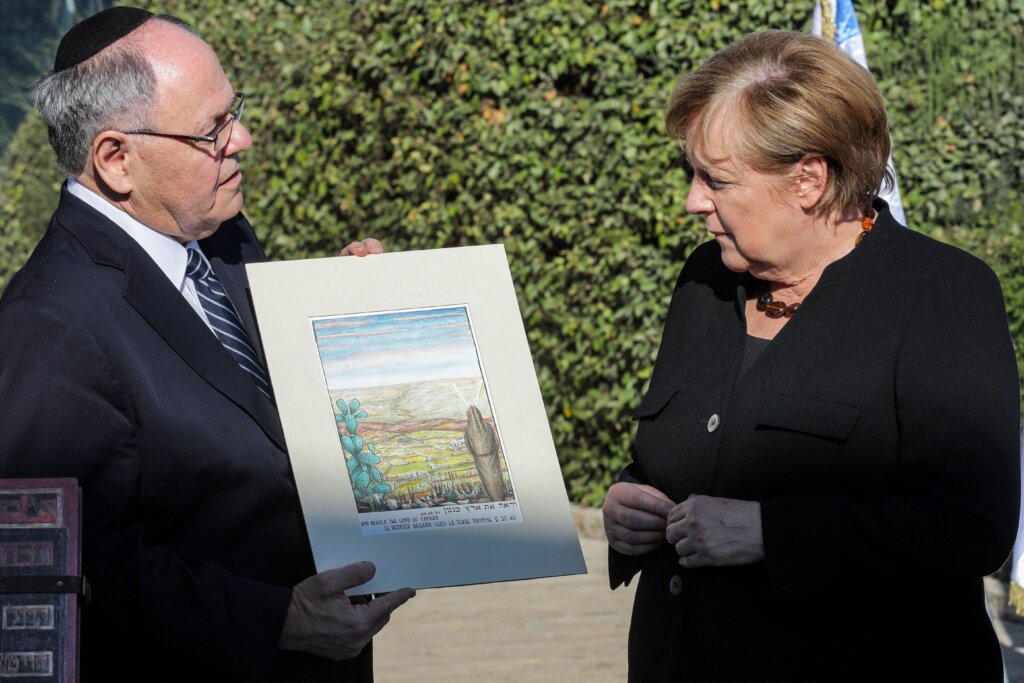New York State to monitor compliance with Holocaust education requirements
Dani Dayan, chairman of Yad Vashem, said in an interview there is still ‘a lot of work to do’ on Holocaust awareness and confronting antisemitism

Governor Kathy Hochul meets with a number of Holocaust survivors in Brooklyn ahead of an announcement on funding to the Holocaust Survivors Initiative on April 27, 2022 Photo by Don Pollard/Office of Governor Kathy Hochul
New legislation that ensures compliance with Holocaust education requirements in New York secondary schools passed the state legislature with unanimous support last week after a long-delayed process.
The legislation — sponsored by state Sen. Anna Kaplan from Great Neck and Assemblywoman Nily Rozic from Queens, both of whom are Jewish — was stalled by Democratic leaders in the Assembly since it was introduced last year amid a dispute over its purpose.
Gov. Kathy Hochul is expected to sign the bill in the near future, but her office didn’t provide a timeline when reached on Sunday. The governor has 10 days to sign or veto a bill once it’s delivered to her by the legislature, a move that has yet to happen.
New York is one of 23 states requiring public schools to teach the Holocaust. Congress passed in 2020 the Never Again Education Act, which provides $10 million over five years to the United States Holocaust Memorial Museum to bolster its educational programming to give teachers the resources and training to teach about the Holocaust.
The new bill orders the commissioner of education to conduct a survey on compliance with the requirement and submit its findings to the governor and state legislature.
It comes at a time when awareness about the Holocaust is at historic lows among Millennials and Gen Z teens. A survey commissioned by the Conference on Jewish Material Claims Against Germany in 2020 found that 60% of Millennials and teenagers in New York do not know that 6 million Jews were murdered during World War II, and 58% couldn’t name a single concentration camp and ghetto in Europe. Nearly 20% thought the Jews caused the Holocaust. The number of antisemitic incidents in New York have also increased by 24 percent last year, according to an annual report released by the Anti-Defamation League.
Rozic said her legislation will help students learn about the horrors of the past so they are not repeated. “It is imperative that we teach our students the dangers of antisemitic attitudes and actions, and that we teach them how to combat Holocaust distortion and trivialization,” Rozic said.
Hochul told reporters following a meeting with Holocaust survivors last month that the bill is an “important” improvement to the state law. “We can never forget the atrocities that people — because of their faith, who they were — were subjected to, in the last century,” she said. “I personally believe that this education needs to be part of the curriculum, and people need to talk about these experiences.”
in a recent interview, Dani Dayan, chairman of the Yad Vashem Holocaust Remembrance Center in Jerusalem, said he is “encouraged” by the progress made in the first two decades of the 21st century about Holocaust awareness in general, though “we have a lot of work to do.”

“Denial of the Shoah is not a serious problem today,” Dayan said. But he suggested the distortion of the Holocaust by heads of states, and the Nazi analogies made in public discourse, remain a serious problem.
Dayan, who previously served as Israel’s consul general in New York, visited the city last week and met with Gov. Hochul and Mayor Eric Adams. He said he asked for the meeting to encourage them to take stronger action in combating antisemitism “the moment it shows its first sign.”
He suggested that leaders still lack “the decisiveness and the determination” to confront antisemitism. “We don’t have the luxury of underestimating the problem,” Dayan said he told Hochul and Adams. “Antisemitism can metastasize into monstrous dimensions.”
A message from our Publisher & CEO Rachel Fishman Feddersen

I hope you appreciated this article. Before you go, I’d like to ask you to please support the Forward’s award-winning, nonprofit journalism so that we can be prepared for whatever news 2025 brings.
At a time when other newsrooms are closing or cutting back, the Forward has removed its paywall and invested additional resources to report on the ground from Israel and around the U.S. on the impact of the war, rising antisemitism and polarized discourse.
Readers like you make it all possible. Support our work by becoming a Forward Member and connect with our journalism and your community.
— Rachel Fishman Feddersen, Publisher and CEO





























